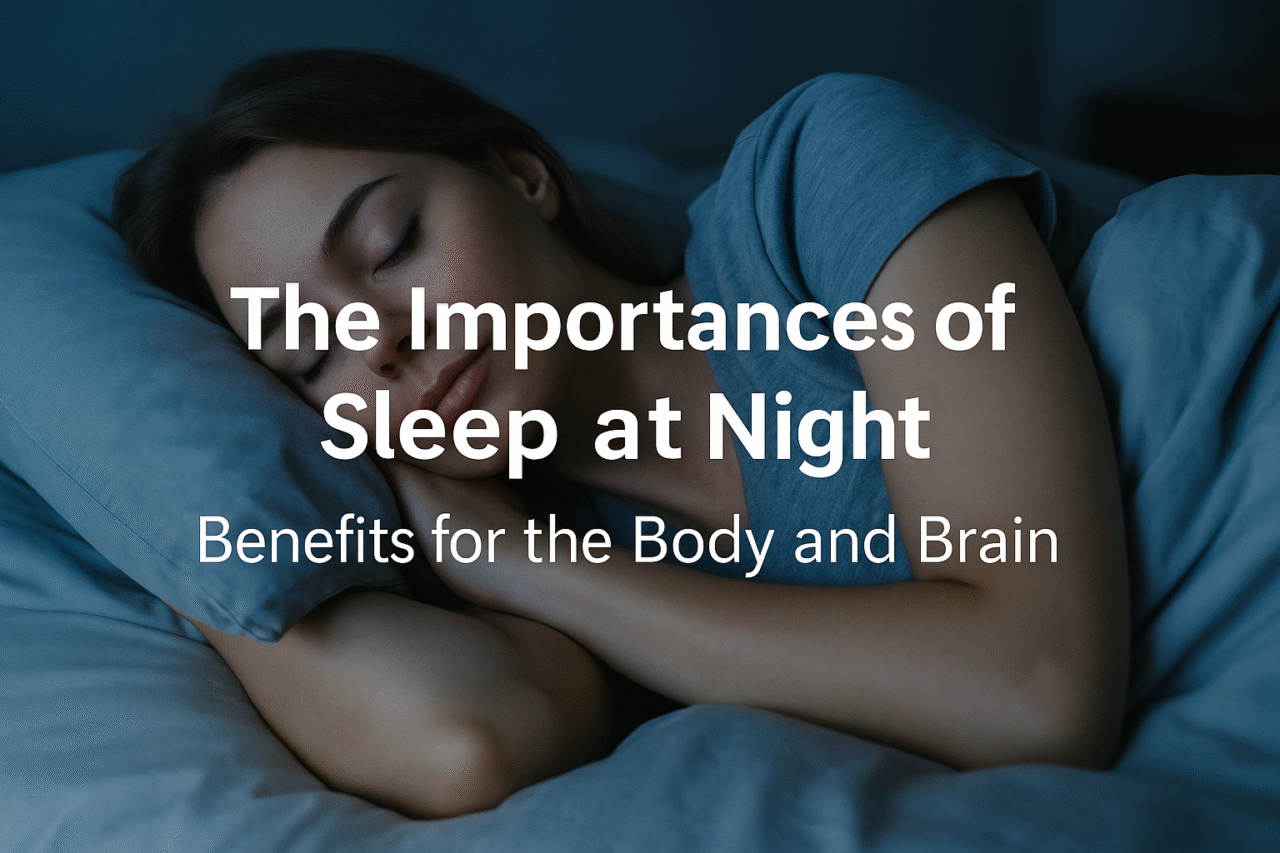The Power of Night Sleep: Benefits for the Body and Brain
Sleep is one of the most essential functions of the human body, yet it’s often underestimated in today’s fast-paced world. Getting quality sleep at night is not just about feeling rested—it’s a critical component of physical health, mental clarity, and emotional well-being.
1. Restores and Repairs the Body
During sleep, especially deep sleep, the body undergoes repair and regeneration. Tissues grow, muscles are repaired, and important hormones like growth hormone are released. This is particularly vital for:
- Muscle recovery and growth
- Strengthening the immune system
- Regulating metabolism
- Balancing hormone levels
People who consistently get 7–9 hours of quality sleep tend to have better physical health and lower risks of chronic diseases such as heart disease, diabetes, and obesity.
2. Boosts Brain Function and Memory
Sleep plays a major role in brain health. While we sleep, the brain is hard at work:
- Clearing out toxins that accumulate during the day
- Consolidating memories, helping us retain what we’ve learned
- Enhancing creativity and problem-solving skills
- Improving focus, attention, and decision-making
Lack of sleep impairs cognitive functions, making it harder to think clearly, process information, or control emotions. Over time, chronic sleep deprivation can even increase the risk of neurological disorders like Alzheimer’s disease.
3. Supports Mental Health
A strong connection exists between sleep and emotional regulation. Good sleep helps:
- Reduce stress and anxiety
- Stabilize mood
- Improve resilience to emotional challenges
On the other hand, poor sleep can worsen mental health conditions, including depression and anxiety. That’s why sleep hygiene is often a key part of mental health treatment plans.
4. Night Sleep vs. Evening Sleep: What’s the Difference?
While it’s possible to sleep during the evening or even the day, night sleep offers distinct biological advantages because it aligns with your circadian rhythm—your body’s internal clock.
Key differences:
- Hormonal Balance: Melatonin, the sleep hormone, is naturally released in the evening and peaks at night. Sleeping during the night supports natural hormone cycles, while evening or daytime sleep disrupts them.
- Deeper Sleep Cycles: Night sleep typically includes more deep sleep and REM cycles, which are essential for memory, learning, and physical recovery.
- Circadian Synchronization: Your body is biologically programmed to rest when it’s dark. Evening or daytime sleep can conflict with this rhythm, resulting in lighter, less restorative sleep.
- Brain Detoxification: The brain’s waste-clearing process (via the glymphatic system) is most active during deep sleep at night, helping reduce the risk of cognitive decline over time.
- Mental Sharpness: Night sleepers tend to experience better mood regulation, focus, and energy during the day compared to those who sleep irregular hours.
In short, while evening or daytime naps can be helpful for short-term rest, they do not replace the deep, restorative processes that occur during nighttime sleep.
5. Enhances Productivity and Quality of Life
When you sleep well, you’re more likely to:
- Be productive and efficient
- Have more energy and motivation
- Enjoy better relationships
- Make healthier lifestyle choices
Sleep improves quality of life in subtle but powerful ways, from boosting creativity to strengthening your ability to cope with daily challenges.
Conclusion
Nighttime sleep isn’t a luxury—it’s a biological necessity. Prioritizing 7 to 9 hours of quality sleep each night can help your body heal, your brain function better, and your emotional well-being stay balanced. Whether you’re a student, a professional, or a parent, sleeping at night is one of the most powerful habits you can build for a healthier, longer life.



